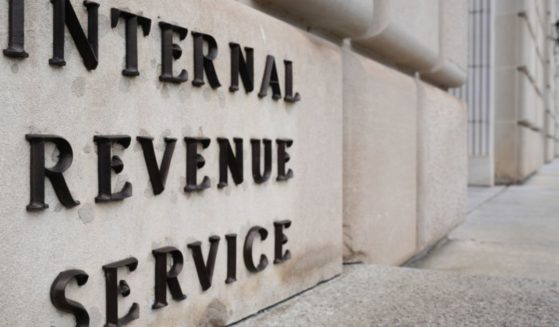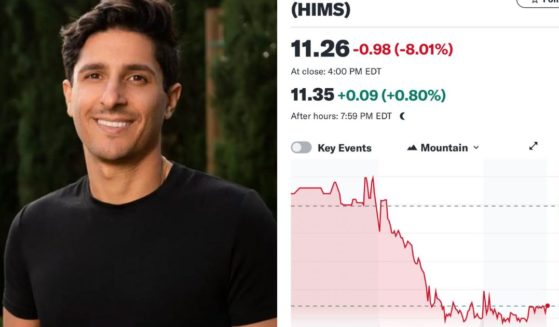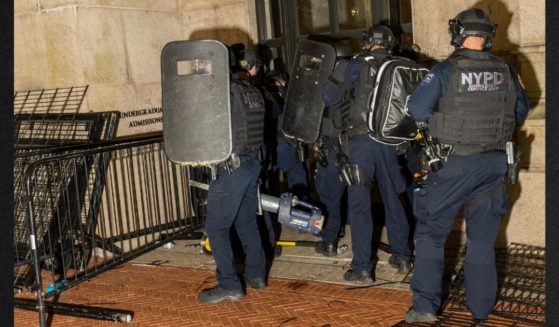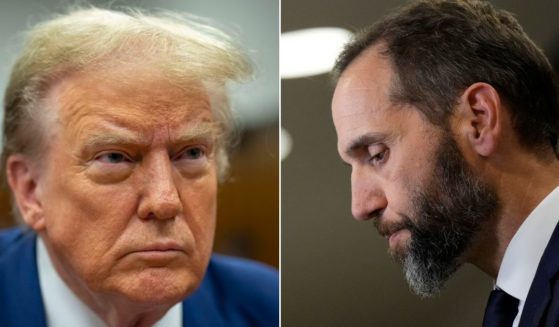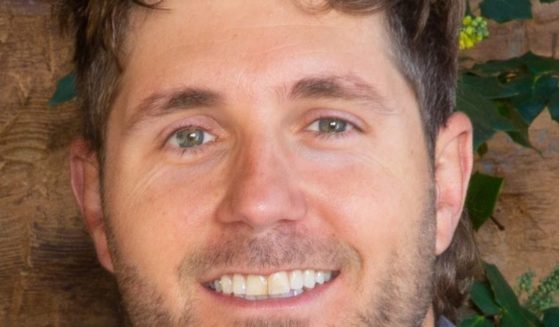Levin Takes Counterview: Trump Would Have Power as POTUS to Pardon Himself from State Charges, Too
Fox News host and former Reagan Justice Department official Mark Levin has taken a contrary view to other legal experts, arguing that former President Donald Trump would be able to pardon himself from state criminal convictions should he be elected president in 2024.
The general understanding is that Trump, as president again, would only have the authority under the U.S. Constitution to pardon himself from federal offenses, such as the charges brought in Miami and Washington, D.C., by special counsel Jack Smith’s office.
The Miami federal indictment relates to Trump’s alleged mishandling of classified documents and the D.C. criminal charges center on his questioning of the integrity of the 2020 election.
On Tuesday, Fulton County District Attorney Fani Willis charged Trump and other co-defendants with crimes related to their alleged efforts to overturn the results of the 2020 presidential election in Georgia.
George Washington University Law School professor Jonathan Turley and former federal prosecutor Andrew McCarthy, both Fox News contributors, contend that while Trump could pardon himself from federal crimes, he would not be able to do so if he is convicted in Georgia.
“There is no federal pardon option for Georgia. Indeed, it is even hard to secure a state pardon, which is not issued by the governor but a pardon board,” Turley wrote for the Daily Beast.
Outlets like CBS News have also reported that Trump would not be able to pardon himself from state-level crimes.
However, Levin, who was chief of staff to Attorney General Edwin Meese during the Reagan administration, takes a counterview.
He tweeted Tuesday, “President Trump can, in fact, pardon himself from the GA charges if he is elected president.”
Levin argued that the same reasoning the DOJ has employed to conclude a president is shielded from criminal prosecution at the federal level applies at the state level, too.
“1. The Constitution’s silent about whether a president can be indicted,” the conservative commentator tweeted.
“2. The DOJ has taken the position under both parties that you cannot indict a sitting president because it would cripple the executive branch and make his ability to defend himself effectively impossible.
“3. Given the DOJ’s position, and the Supremacy Clause in the Constitution, I would argue strongly that the idea that a president cannot be indicted at the federal level because it would cripple the executive branch, but can be indicted by local DAs, would have exactly the same effect as a federal indictment, except there are thousands of local and state prosecutors making the crippling of a president even more likely.
“4. FURTHERMORE, if indicted and even convicted, the idea that a president cannot pardon himself from state charges is absurd, again, not only because of the Supremacy Clause, but the same considerations that apply to a federal conviction would obviously apply to a state conviction.
“Therefore, I disagree with Jonathan Turley’s view and others who keep repeating it,” Levin concluded.
President Trump can, in fact, pardon himself from the GA charges if he is elected president.
1. The Constitution’s silent about whether a president can be indicted.
2. The DOJ has taken the position under both parties that you cannot indict a sitting president because it would…— Mark R. Levin (@marklevinshow) August 15, 2023
The Supremacy Clause, Article VI, Clause 2 of the Constitution, provides, “This Constitution, and the Laws of the United States which shall be made in Pursuance thereof … shall be the supreme Law of the Land; and the Judges in every State shall be bound thereby, any Thing in the Constitution or Laws of any State to the Contrary notwithstanding.”
Cornell Law School’s Legal Information Institute explained that the Supremacy Clause “establishes that the federal constitution, and federal law generally, take precedence over state laws, and even state constitutions. It prohibits states from interfering with the federal government’s exercise of its constitutional powers.”
Levin’s argument is that this clause means a state court would not be able to do what a federal court could not in relation to preventing the president from performing his job under the Constitution.
In other words, a state cannot trump the federal government in this matter. Georgia could not force a President Trump to try to govern from a state jail.
The remedy provided by the Constitution for a president who is believed to have engaged in criminal wrongdoing is for Congress to impeach him or her.
Levin makes a compelling case. We’ll see what the future holds as the U.S. continues to navigate uncharted constitutional waters.
Truth and Accuracy
We are committed to truth and accuracy in all of our journalism. Read our editorial standards.

